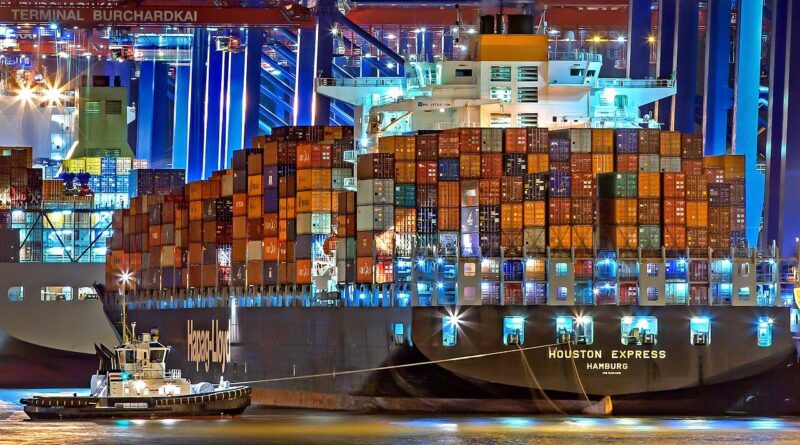How EU-UK online shopping changes post-Brexit
Although the United Kingdom and the European Union have reached an agreement on free trade, since January 1 2021 goods purchased online and shipped across the Channel have been hit by additional fees.
What has changed? Customs duties are now imposed on some products. The way VAT is applied is different. Customs declarations are required, and consumer protection across borders is weaker.
European consumer organisation BEUC has asked more clarity about the deal, as conditions are not always clear when completing online orders and buyers have complained about unexpected extra costs.
Customs duties
Under the EU-UK trade agreement, customs duties are applicable to online purchases worth more than €150 or £135 based on the ‘rules of origin’.
Usually if EU-based consumers purchase an item outside the EU, they have to pay customs duties. If they buy within the EU, they don’t.
Under the rules of origin, however, duties depend on where the product is manufactured. They have to be paid for products bought from British retailers that have not been made in the UK, and vice versa.
Goods must include a certain amount of EU or UK content to be considered manufactured there, explains Ecommerce Europe, the group representing the online trade sector in Brussels.
Otherwise they are subject to duties that are calculated as a percentage of the item’s value, depending on the type of product.
It is the responsibility of the buyer to check which customs and import charges apply, and to pay them, even if they are not detailed during the online transaction.
BEUC, the voice of national consumer associations in Brussels, argues that buyers should know the full price at the time of the purchase.
“We call on the EU, its member states, and the UK to clarify immediately what this agreement means for consumers when it comes to paying customs duties,” said Director General Monique Goyens.
“To illustrate, while the agreement indicates that consumers should be made aware of the full price when buying online across the Channel, it doesn’t say how this will work in practice,” she added.
“For example, a Belgian consumer will have to pay custom duties when buying a product made in China online from a British retailer. Consumers need to know this to be able to make an informed choice,” she argued.
VAT requirements
The way VAT is applied is also changing. The EU Low Value Consignment Relief, which exempted from VAT parcels of up to £15 and €22 in value respectively, is abolished. The EU will only maintain it until July 1, when a VAT reform for e-commerce will come into effect.
Under the new rules, EU customers receiving a consignment worth up to €150 from the UK and other third countries, and British customers receiving a consignment of up to £135 from the EU, will have to pay local VAT in their country of residence.
If the goods are sold through online marketplaces such as eBay, the VAT is collected by the marketplace on behalf of the vendor, so it can be seen at checkout.
On items over £135 imported to Great Britain, the recipient may need to pay VAT as part of clearing the parcel through customs, eBay says. This is not paid at checkout but at the point of delivery, often taking consumers by surprise.
Goods sent to the UK as a gift that are over £39 in value are also liable to import VAT.
As regards retailers, the UK decided that overseas traders are liable to UK VAT on goods sold directly to UK consumers, as the sale is deemed to have taken place in the UK. If the goods are located in the UK, overseas retailers also have to register for VAT in the UK.
These new measures are likely to discourage small enterprises in the EU from selling their products in the UK.
Customs declarations
Whether custom duties have to be paid or not, customs declarations are needed when purchasing or returning goods between the EU and Great Britain. As a result of these new procedures, some traders started to charge customers with extra fees.
Ecommerce Europe says that “many disruptions with delivery of goods have been reported since 1 January 2021” and “numerous retailers based in the UK have stopped shipping to the EU altogether, as have some EU businesses to the UK.”
In 2019, eBay reported that almost two thirds (64%) of small and medium-sized enterprises trading on its UK platform had exported internationally in the previous year. Germany, France, Italy, Ireland, Spain, Sweden, Norway and the Netherlands were among the top 10 markets for money spent.
Consumer protection
Consumer protection is also affected by the new EU-UK deal. Legislation on consumer rights in the UK and the EU has not changed because of Brexit. The trade agreement confirms that “traders will be required to inform consumers about the product, seller, full price, applicable consumer rights, as well as to ensure access to redress,” BEUC reminds.
The EU and the UK will also continue exchanging rapid alerts on products that are dangerous or do not comply with legal standards.
However, the deal does not include cooperation between authorities on the enforcement of consumer rights, BEUC warns.
In case of problems, British businesses and consumers will no longer be able to use the Online Dispute Resolution (ODR) platform, a website in all EU languages linking consumers with Alternative Dispute Resolution (ADR) providers in the EU.
The UK will also be excluded from the European Small Claims Procedure, which has been designed to simplify cross-border claims of up to €5000, French group Europe Consommateurs notes.
Having a judgement enforced across borders will become more difficult, according to UK consumer group Which?.
Consumers associations urge online shoppers to check carefully the terms and conditions of their purchases. They advise to not rely on the website domain name, for example co.uk or .eu, or the currency in which the prices are displayed to assume where the items are coming from, but to verify return policies, order cancellations, import charges, VAT, and the jurisdiction responsible of resolving disputes.
Online sales of goods to and from Northern Ireland will continue to be treated as EU supplies.
A list of consumers’ organisations in the EU and the UK is available here.
Claudia Delpero © all rights reserved
Image by Julius Silver from Pixabay
Europe Street News is an online magazine covering citizens’ rights in Europe. We are fully independent and we are committed to providing factual, accurate and reliable information. We believe citizens’ rights are at the core of democracy and information about these topics should be accessible to all. This is why our website and newsletter are available for free. Please consider making a contribution so we can continue and expand our coverage. Click here to contribute using PayPal.





